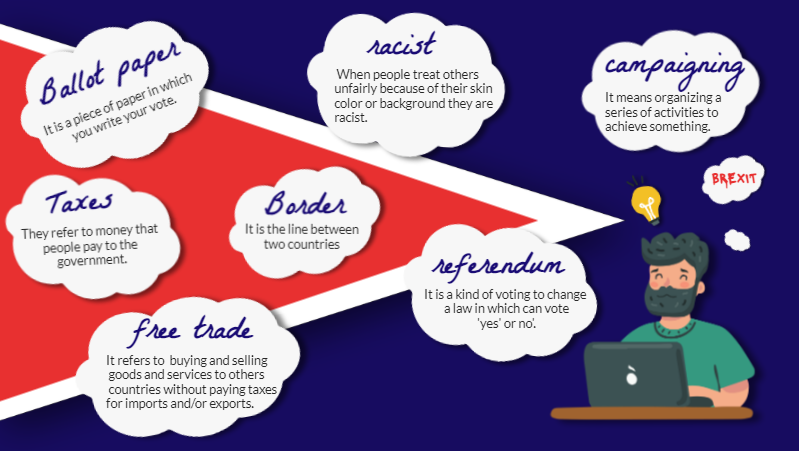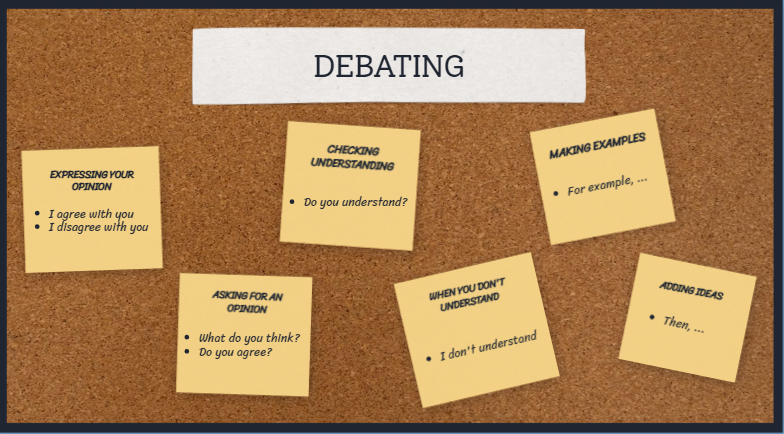5. What do you Think about Brexit?
Let's talk about 'Brexit'
First of all, what does BREXIT mean? Do you know? It is a mixture of words ... any clue?
Well, BREXIT = British + Exit so it refers to the exit of Britain from the EU (European Union), that is, a group of 28
countries.

In 2016, 52% of the people of the United Kingdom decided to leave the EU through a 'referendum' vote. British
citizens had different reasons for wanting to leave the EU. Some people wanted to reduce immigrants, that is,
people coming to live to the UK from other countries. Some people wanted to be independent from Europe.
Some people thought that leaving the EU would be better for businesses in the UK.
.
What do you think about it? Is the UK in Europe now? Do you need a passport to travel there?
- - - - - - - - - - - - - - - - - - - - - - - - - - - - - - - - - - - - - - - - - - - - - - - - - - - - - - - - - - - - - - - - - -
Get a glimpse of this useful vocabulary beforehand:

Now, Reflect about the following questions so that we can have a debate in class:
1) In your opinion, are the 52% of the people who voted to leave the EU racists?
2) Do you think that immigration will cease? Why?
3) What are the advantages of being in the EU? What are the countries that make part of it?
4) Do you believe that travelling to the UK is now as easy as before?
5) What about free trade with other countries?
.
=> Watch and listen to the opinion of this group of British students voting 'LEAVE' or 'REMAIN' at their school the
day before the official referendum.
Both teams: 'leave' and 'remain' talk about jobs, trade and travel. What do they say?
.
CLASSROOM DEBATE: Have your say now! Are you in team LEAVE or in team REMAIN? Get together in groups and
share your thoughts with your classmates. In your speech, make sure that you include some of the following debate
expressions:

The evaluation of this task will take into account the following points: 1. Use of debate expressions (opinion, agreement, etc.) 2. Pronunciation , 3. Fluency, 4. Use of grammar and 5. Eye contact with your spectators.
Obra publicada con Licencia Creative Commons Reconocimiento Compartir igual 4.0